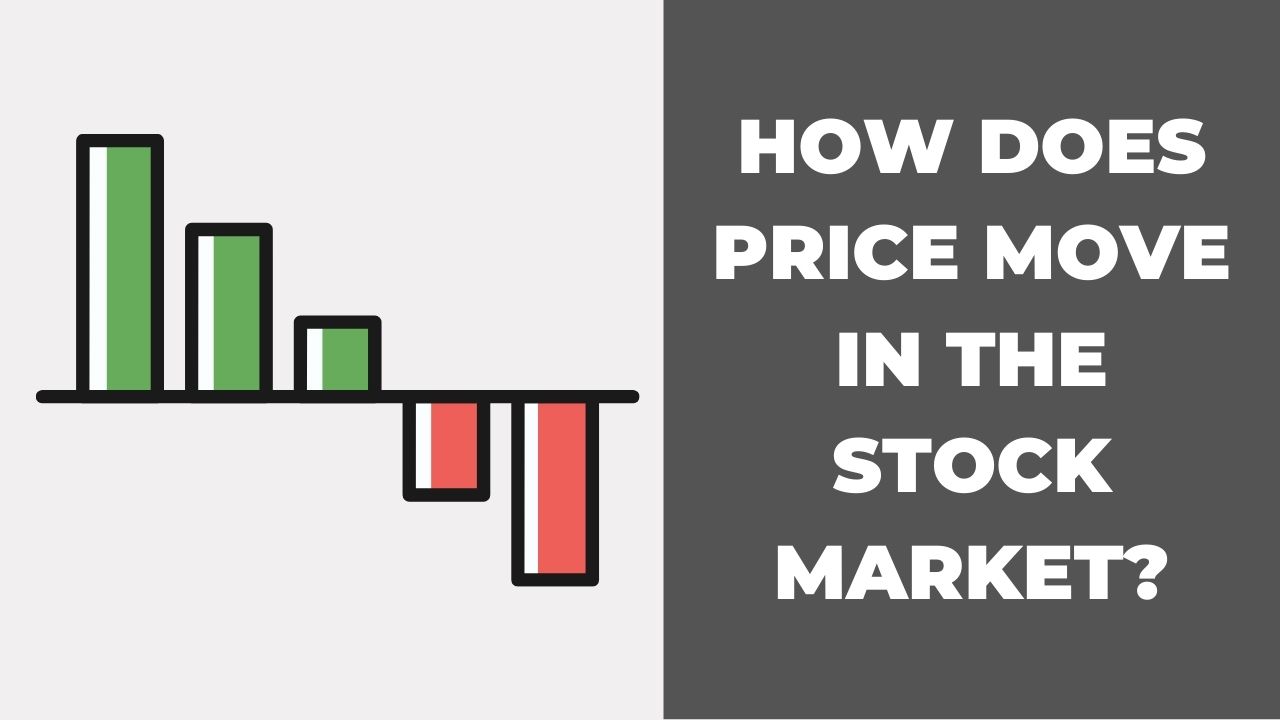Have you ever wondered how a stock price moves in the stock market? Questions like how does price move in the stock market, how prices go up or down, who sets them, and who changes them always make us think. Understanding these factors can help investors make smarter decisions and find opportunities in the stock market. Let’s get started.
Table of Contents
How is price decided in the stock market?
The price we usually see is the last traded price. But what does this mean? It is the latest price at which the buyer and seller both agreed to exchange money and shares respectively, and this process continues.
How does share market price go up and down?
The price of a stock in the stock market is influenced by the forces of supply and demand. But how exactly?
- When there is high demand for a particular stock, meaning more people want to buy it, its price usually goes up. This happens because the increased interest creates competition among buyers. They’re willing to pay more to secure the shares they want, especially if they believe the stock’s value will keep rising, and they don’t want to miss out on potential gains.
- When there is high supply of a stock, meaning more people want to sell it, its price may drop. This surplus of sellers can put downward pressure on the stock’s price as they compete to sell their shares. Some sellers may be motivated by concerns about future price declines or a desire to lock in profits before the stock loses value. They might decide to sell at a slightly lower price than they originally intended if they believe the price could fall significantly in the near future. For example, if they planned to sell at Rs. 50 but the last traded price is Rs. 49, they might decide to sell at Rs. 48 to avoid potential further declines. This abundance of sellers can lead to a slight decrease in prices as they try to attract buyers with lower prices.
This continuous back-and-forth between buyers and sellers creates a dynamic market where stock prices fluctuate throughout the trading day.
What directly affects stock price?
There are many factors that affect the stock prices directly:
- Company Performance: The financial health and growth prospects of a company play a significant role in determining its stock price. Investors closely analyze factors such as revenue, earnings, profit margins, and future outlook when making investment decisions.
- Market Sentiment: Investor sentiment, or how optimistic or pessimistic investors feel about the market or a particular stock, can have a substantial impact on stock prices. Positive sentiment can drive prices higher, while negative sentiment can lead to declines.
- Economic Indicators: Economic indicators such as GDP growth, inflation rates, unemployment figures, and interest rates can influence investor behavior and, consequently, stock prices. For instance, a robust economy typically translates to higher corporate profits, which can boost stock prices.
- Industry Trends: Trends and developments within specific industries can affect the stock prices of companies operating within those sectors. For example, advancements in technology may benefit tech companies and drive their stock prices up.
- Market Supply and Demand: Ultimately, the interaction between supply and demand in the market determines stock prices.
Who sets opening stock prices?
In India, like in many other countries, opening stock prices are typically not set by any single person or entity. Instead, they are influenced by pre-market trading, where investors can trade stocks on stock exchanges before the official trading session begins.
Pre-market session in India lasts from 9:00 AM to 9:15 AM. In the initial 8 minutes, from 9:00 AM to 9:08 AM, investors can submit, modify, or cancel their orders. They can place limit orders or market orders. However, it’s important to note that the volume and participation in pre-market trading may be relatively lower compared to regular trading hours.
Conclusion
The interaction between supply and demand, along with external factors, drives the constant changes in stock prices in the share market. Understanding these concepts is important for an investor if he wants to get benefitted by the opportunities in the stock market effectively.

